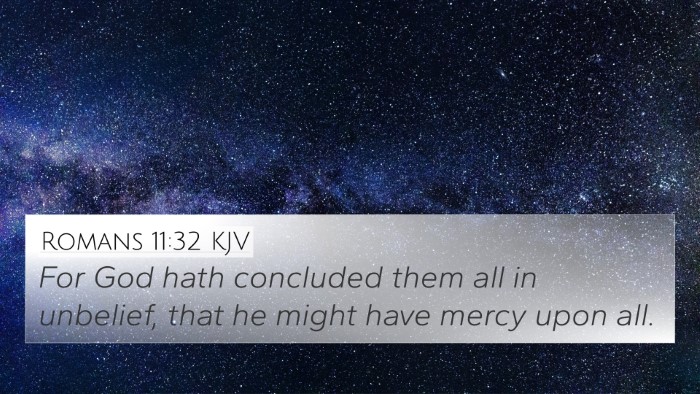Meaning and Interpretation of 1 Samuel 26:8
1 Samuel 26:8 narrates a striking moment in the life of David, illustrating themes of loyalty, leadership, and divine providence. This verse reads:
“Then said Abishai to David, God hath delivered thine enemy into thy hand this day: now therefore let me smite him, I pray thee, with the spear even to the earth at once, and I will not smite him the second time.”
Summary of Biblical Context
This passage occurs in the context of David’s flight from King Saul, who is determined to kill him. Abishai, one of David's warriors, perceives Saul's vulnerability and urges David to take decisive action against his enemy. However, David's response showcases his integrity and his commitment to trusting in God's timing.
Commentary Insights
- Matthew Henry: Henry emphasizes the significance of Abishai's eagerness to eliminate Saul, viewing it as a test of David’s moral fiber. David's refusal to harm Saul reflects his understanding of God's choice and his respect for the Lord's anointed, highlighting the notion of divine sovereignty.
- Albert Barnes: Barnes points out that the suggestion of Abishai reveals the conflict between human judgment and divine purpose. He suggests that David’s restraint exemplifies the need for patience and faith in God's plans, even when circumstances appear to favor immediate action.
- Adam Clarke: Clarke interprets this moment as a manifestation of David's character. David’s merciful disposition not only preserves Saul's life but also underscores the importance of divine justice and the waiting for God’s judgment rather than taking matters into one’s own hands.
Thematic Connections with Other Bible Verses
This verse encourages readers to study cross-references that provide further insight into the narrative of David and Saul. The themes of mercy, divine authority, and moral choices resonate throughout the Scriptures. Below are biblical texts that relate to each other, illustrating these themes:
- 1 Samuel 24:6: David spares Saul’s life in a similar encounter, reinforcing his respect for Saul as God's anointed.
- Psalms 37:1-3: David’s faith in God’s justice and timing, affirming the call to trust in the Lord amidst adversity.
- Matthew 5:44: Jesus’ teaching on loving and praying for one’s enemies, echoing David’s approach to Saul.
- Romans 12:19: Paul’s instruction to leave vengeance to God aligns with David’s choice to forbear harm against Saul.
- Proverbs 20:22: This verse advises waiting for the Lord to act, reflecting David's patient reliance on divine justice.
- 1 Peter 2:23: Christ’s example of not retaliating when wronged serves as a parallel to David’s restraint with Saul.
- 2 Timothy 4:14-15: A reminder of God's vengeance and justice in apostolic teaching, paralleling David's reliance on God's judgment.
Practical Applications and Lessons
The implications of 1 Samuel 26:8 extend to contemporary believers. It challenges us to:
- Exercise patience when faced with adversaries.
- Trust in God’s sovereignty over situations that seem to necessitate immediate action.
- Reflect on our responses to enemies and the importance of mercy.
- Recognize the role of divine timing in the unfolding of life’s events.
How to Use Bible Cross-References
Utilizing a Bible concordance or a cross-reference guide can illuminate connections between verses like 1 Samuel 26:8 and those that follow a thematic thread. Tools for Bible cross-referencing enhance understanding by:
- Identifying links between Old and New Testament teachings.
- Encouraging deeper exploration of scriptural themes and patterns.
- Facilitating comparative Bible verse analysis.
- Providing resources to support sermon preparation and individual study.
Conclusion
1 Samuel 26:8 serves as a profound reminder of the complexity of human relationships under divine scrutiny. The lesson found within this narrative about restraint, mercy, and trusting God's timing is timeless, inviting believers to reflect on their own lives and relationships.













